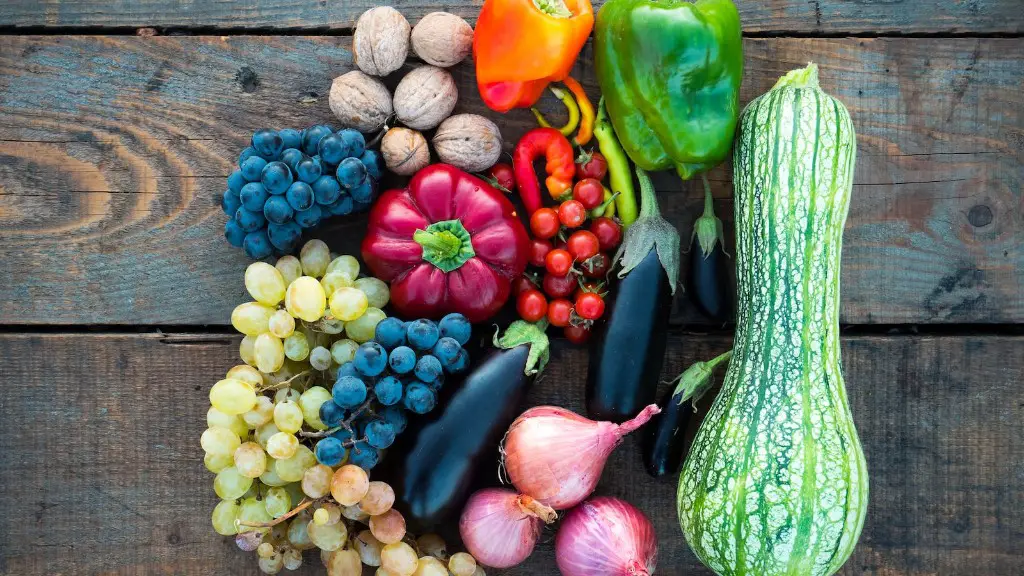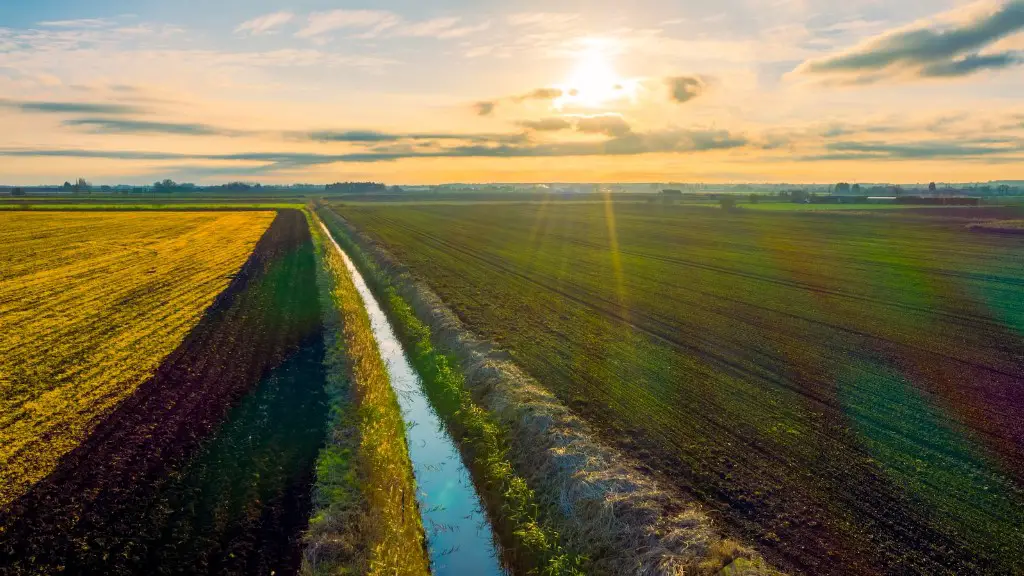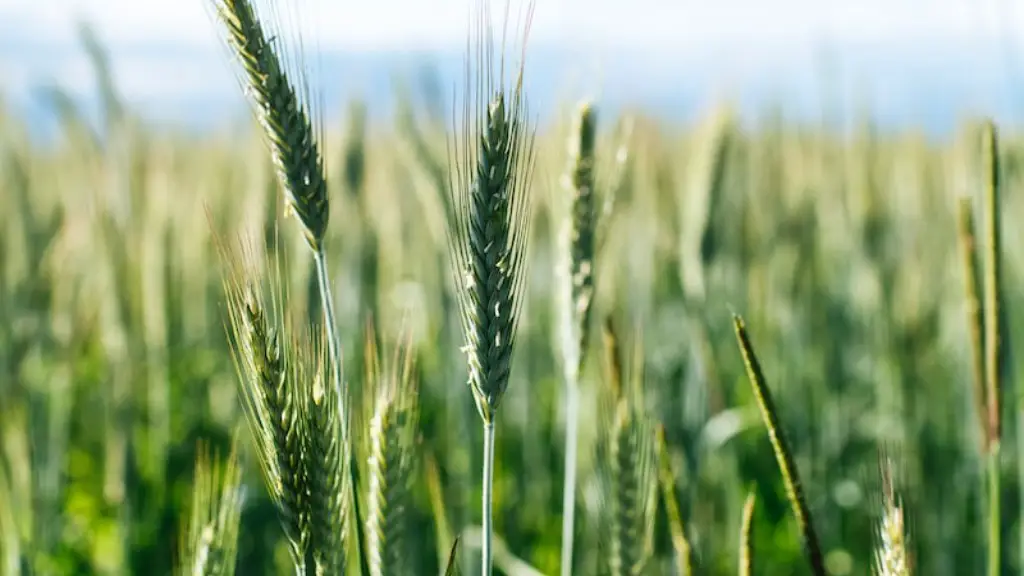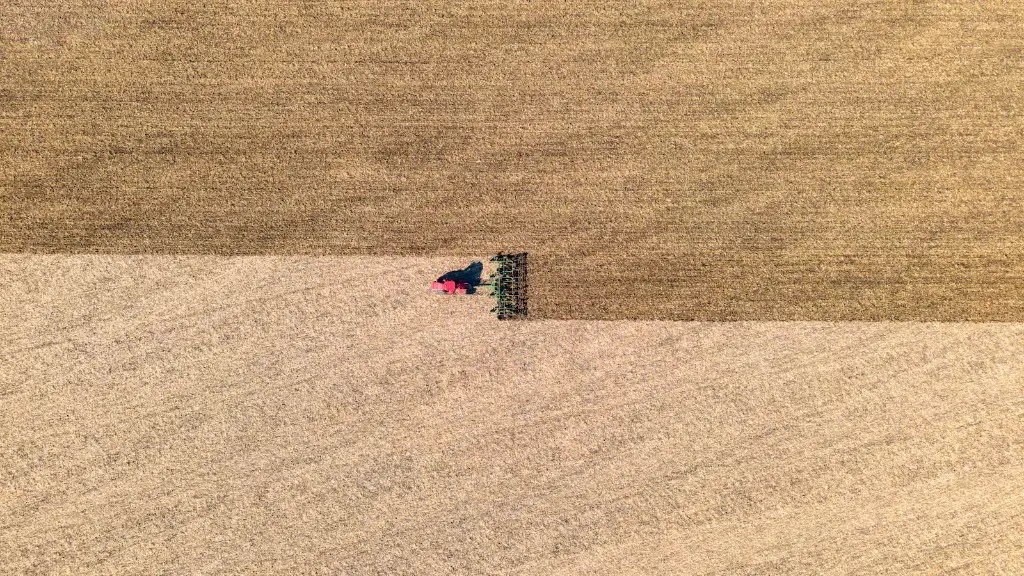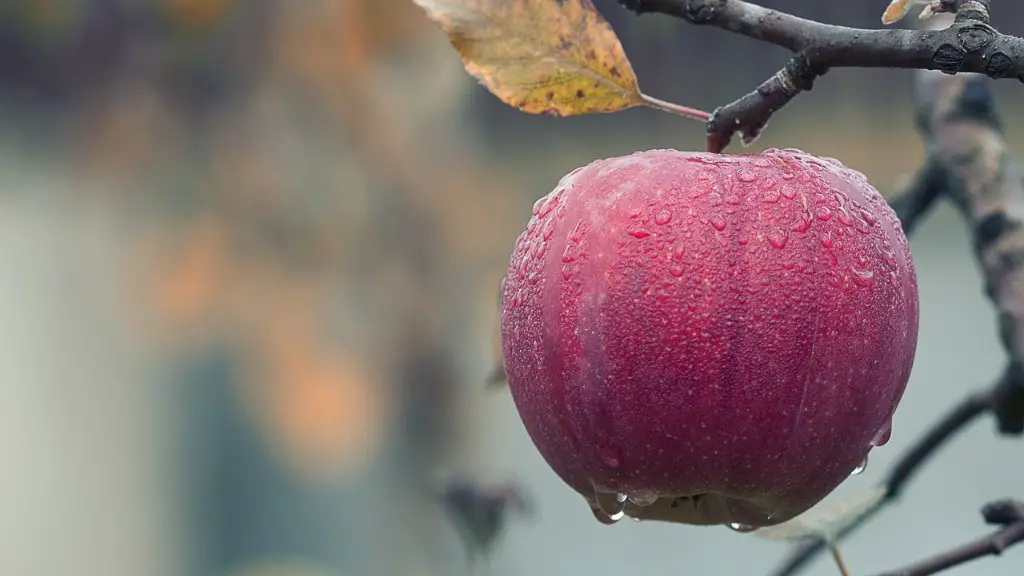The future of agriculture is a hotly debated topic, with many people arguing that organic farming is the way to go. Proponents of organic farming argue that it is more sustainable and environmentally friendly than traditional farming methods, and that it produces healthier food. Critics, on the other hand, argue that organic farming is less productive and more expensive, and that it is often no better for the environment than traditional farming.
There is no easy answer to this question. Organic farming has many benefits, but it also has some drawbacks. The debate over whether or not organic farming is the future of agriculture is likely to continue for some time.
Is organic farming the future of agriculture debate points?
The quality of the soil is important for the growth of crops. The heavy use of chemicals and other pesticides over the decades has done damage to the soil. Organic farming avoids the use of chemicals and helps to maintain fertile land. This results in better production of food.
Organic farming has emerged as an important tool to address the challenges of agriculture, including the adverse effects of burning crops and global warming. Organic farming practices avoid the use of chemical fertilizers and pesticides, instead relying on natural processes to improve crop yield and quality. These practices have been shown to be effective in reducing the negative environmental impacts of agriculture, while also improving the economic viability of farmers.
What are the arguments in Favour of organic farming
Organic farming is a great alternative to traditional farming methods. It is more sustainable and does not use pesticides or fertilizers that can pollute the environment. Organic farming also enhances biodiversity and results in better soil quality.
Organic farming has a number of disadvantages that include being labor-intensive, sensitive to economic decline, and requiring more planning. However, there are also several advantages to organic farming, such as being less susceptible to natural and financial risks, more efficient, sustainable, and environmentally friendly.
Why are people against organic farming?
Organic farming is a type of agriculture that relies on natural processes, rather than the use of synthetic inputs, such as chemicals and GMOs. Critics of organic farming say that it is less efficient than conventional farming, and so uses more land, leading to greater deforestation, which causes higher carbon dioxide emissions and biodiversity loss. They also argue that organic farms are more likely to experience pests and diseases, and that they produce lower yields than conventional farms.
Organic growers in the US face a number of challenges, including lower yields relative to conventional farming, difficulty maintaining high quality soil nutrients, and gaining proper certifications and market access. These challenges can make it difficult for organic growers to compete with conventional farmers, and can ultimately lead to higher prices for consumers.
Is organic farming better or worse for the environment?
Organic agriculture has been shown to reduce non-renewable energy use by decreasing agrochemical needs. This is significant because it requires high quantities of fossil fuel to produce agrochemicals. Additionally, organic agriculture can help mitigate the greenhouse effect and global warming through its ability to sequester carbon in the soil.
Organic agriculture has many environmental benefits compared to conventional farming. Organic farms store more soil carbon, have better soil quality, and reduce soil erosion. They also create less soil and water pollution and lower greenhouse gas emissions.
Is organic farming really better
Organic farming is a more sustainable and environmentally friendly form of agriculture than conventional methods. Organic farming has a smaller carbon footprint, conserves and builds soil health, replenishes natural ecosystems for cleaner water and air, all without toxic pesticide residues. These benefits are especially important in the face of climate change and its impacts on the environment and human health.
Organic farming is a type of agriculture that does not use synthetic fertilizers or pesticides, and instead relies on organic matter to fertilize and control pests and diseases. Organic farming can have many benefits, including improved soil health, reduced reliance on chemicals, and support for pollinators. However, organic farming can also be more expensive than conventional farming, and have higher production costs.
What are the negative effects of organic farming?
Organic systems have lower land-use efficiency than conventional systems. This is because organic crop yields are lower than conventional yields on average. In addition, organic crop rotations typically include crops that are not suitable for human consumption.
Organic farming has a lot of disadvantages that often go unnoticed. Firstly, organic farmers may use organic pesticides and other organic chemicals, which can be just as harmful as non-organic pesticides and chemicals. Secondly, organic farming is often more expensive than conventional farming, due to the lack of subsidies that organic farmers receive. Thirdly, organic farming is more knowledge-intensive than conventional farming, meaning that more work and observations are required in order to be successful. fourthly, organic farms often lack the infrastructure that conventional farms have, making it more difficult to scale up.
Do you think that the advantages of organic agriculture outweigh its disadvantages
There are many benefits to gardening organically, including better tasting fruits and vegetables, improved health, and a reduced impact on the environment. However, organic gardening also has its own challenges, such as dealing with pests and weeds. With a little effort, however, these challenges can be overcome, and the rewards of organic gardening are well worth the effort.
There are a lot of myths surrounding organic food, but the outcome of the Stanford study busts one of the biggest ones – that organic food is not overrated. Even though the study found that organic food does not yield richer nutritional content than non-organic, the significant environmental impact of pesticides still make organic an important option in the produce aisle. If we want to protect our environment and our health, organic is still the way to go.
What are 3 challenges that organic farmers face?
Organic farming has been on the rise in recent years as more and more people are looking for ways to eat healthier. However, there are a number of challenges that organic farmers have to deal with in order to be successful.
One of the biggest challenges is time.Organic farming takes a lot longer than traditional farming methods, which can be a real problem when trying to get crops to market in a timely fashion. pests can also be a big issue for organic farmers.
Since organic products are free of pesticides, they can be a real target for pests. This can make it difficult to keep crops healthy and protect them from damage. Marketing organic products can also be a challenge.
Since there is a limited supply of organic food, it can be hard to compete with the big grocery stores that sell traditional produce. Farmers who want to succeed in the organic market need to be creative and innovative in their marketing strategies.
Other recent research has also concluded that organic farming produces more climate pollution than conventional practices when the additional land required is taken into account. This is due to the fact that organic farms are typically smaller in size than conventional farms, and therefore require more land to produce the same amount of food. In addition, organic farming practices often require more labor, which can lead to higher emissions of greenhouse gases.
Final Words
There is no definitive answer to this question as the future of agriculture is dependent on a number of factors, including global climate change, population growth, and technological innovation. However, many experts believe that organic farming could play a significant role in meeting the world’s food needs in the future.
Although organic farming has many benefits, it is not without its challenges. Organic farmers must be diligent in their practices to maintain certification, and they often face higher production costs. As the demand for organic products grows, more farmers are likely to transition to organic farming, making it the future of agriculture.
